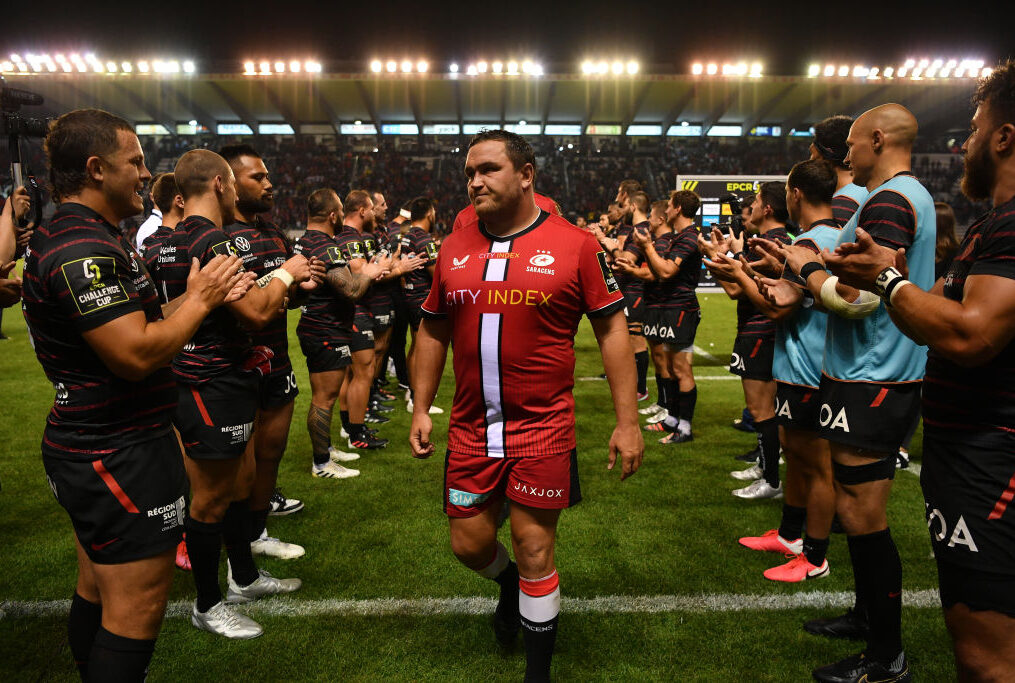England’s lack of representation in rugby’s European finals is no quick fix

Even before this weekend’s Champions Cup semi-finals, the English game knew it would have no representation in the final.
And bar outliers Saracens – who picked up three titles in four years – and Exeter Chiefs’ triumph during the pandemic, there has been little for Premiership sides to boast about at the highest level of European club rugby.
Even the Challenge Cup, where English teams have historically done well, will be contested between two French outfits in Lyon and Toulon.
A number of factors have contributed to a lack of competitiveness from Premiership teams at the business end of the best club competition in world rugby.
But with a reducing salary cap and a tightening of pursestrings across the league, it could be years before English sides are truly competitive en masse once more.
This year’s two finals will feature three French sides – Toulon and Lyon in the Challenge Cup and La Rochelle in the Champions Cup – as well as favourites Leinster.
Saracens succumbed to a strong Toulon side by 25-16 on Saturday, just hours after Lyon clinched a 20-18 win over Wasps. It was heartbreak for the English duo.
All of these winning teams, and the domestic leagues they belong to, are allowed to spend more than the English clubs. The United Rugby Championship – home to Leinster – has no salary cap while the French league operates a limit of around £8.5m.
In England, however, the cap is down at £5m plus two players excluded from that figure – and next year it will fall to £5m with a single player exclusion.
Salary caps aren’t the sole reason but they matter. How clubs are able to operate financially shapes how they grow parts of their club, such as academies and pathways to the top.
Many of the English teams would have playing budgets below the best sides in the French second tier. That’s the level of disparity in play here, but that’s no excuse on its own.
France and Ireland’s focus on pathways has created a level of depth in each side that allows them to rotate a large player pool – much like the Saracens model that guided them to their period of success.
French clubs must include a certain number of academy players or graduates in their matchday 23 and Ireland have always been about homegrown talent making up the spine of their teams.
England is heading this way in a couple of seasons’ time but by the time the Premiership sides catch up, others will be further ahead.
In yesterday’s 20-13 win for La Rochelle over Racing 92, a mainly French group of players featured alongside a few overseas stars, such as Scot Finn Russell and All Black Victor Vito.
Leinster’s team on Saturday – who beat Toulouse 40-17 – saw Australian Michael Ala’alatoa feature in a side of mainly Irishmen.
But look at English sides and they’re packed with overseas talent. That’s not a bad thing, of course, but when you are required to prioritise English talent, you lose the journeymen along the way.
So the salary cap is key, but the processes English sides have put in place while not utilising pathways – such as the Championship – in the ways Ireland and France do has also undoubtedly had an impact.
Welsh clubs, too, struggle and for similar reasons. This isn’t a problem singularly for England.
So in a fortnight when the Champions and Challenge Cup finals take place in host city Marseille, remember that this isn’t a sudden change in fortunes.
It’s a long standing plan for success that takes years to implement. And, as La Rochelle, Leinster, Lyon and Toulon show, it’s reaping rewards.

